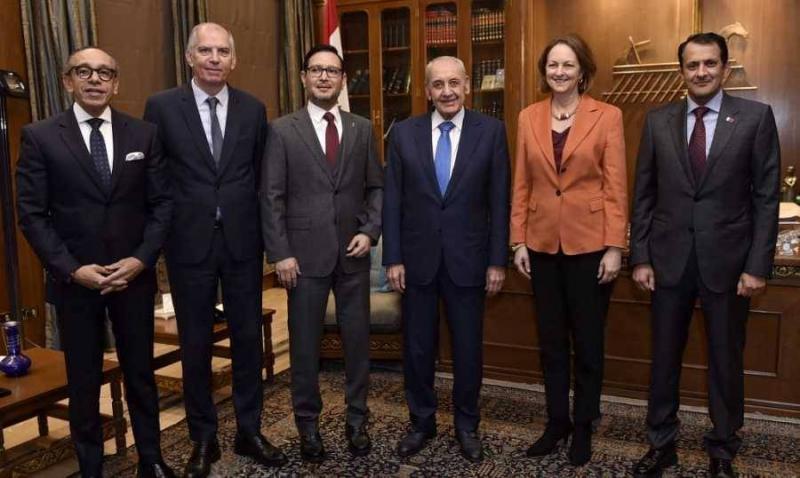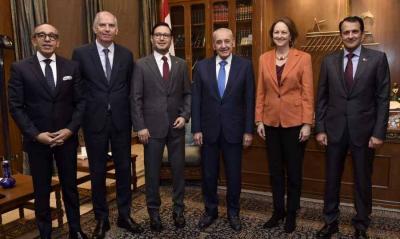The day after the meeting of the ambassadors of the Quintet in Ain el-Tineh, diplomatic circles revealed to "Nidaa al-Watan" the dimensions of this meeting, which was accompanied by various interpretations. Amid questions about the timing of the ambassadors' involvement in the presidential election process, these circles pointed out that "there seems to be an opportunity on the horizon to elect a president during the period when the Gaza war enters a truce." This means that the conditions are favorable for the Quintet to catalyze the presidential elections.
According to these circles, the timing of the Quintet ambassadors’ movements at this stage requires maximum efforts in synchrony with the expected truce before the war resumes, making the sought-after goals unattainable. They emphasized that achieving the presidential obligation requires reaching an understanding regarding the identity of the next government president to cooperate with the new president in forming a government that seeks to implement a rescue program. Otherwise, what is the benefit of electing a president without an integrated framework concerning the presidency of the government and the government itself? If this does not happen, the next president will find himself alone, overwhelmed by the task assignment and subsequently the formation crisis, as has happened previously.
In related developments, prominent opposition sources told "Nidaa al-Watan" that the position of President Nabih Berri, as conveyed during the Quintet ambassadors' meeting regarding dialogue before electing a new president, "is completely unacceptable." They clarified that Berri knows such dialogue would lead to no outcome. There is no solution except to call for open election sessions or to agree on a candidate name through communication among parliamentary blocs, as occurred with the extension of security leaderships. They noted that communication stopped when the resistance set the condition of prior acceptance of their candidate name, the head of the "Mard" movement, Sleiman Franjieh.
In this context, Saudi Ambassador Walid Bukhari left Beirut for Riyadh for consultations.
As for developments related to the presidential obligation and the recent field updates in the south, it was learned that the meeting held the day before yesterday between caretaker Prime Minister Najib Mikati and the commander of the United Nations Interim Force in Lebanon (UNIFIL), General Arolado Lazaro, discussed the operational steps required to implement Resolution 1701. It is expected that consecutive meetings will be held to establish this mechanism. Observers believe that this meeting is also related to the anticipated Gaza truce and its effects on the south later on.




